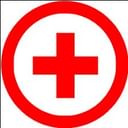Acute Viral Fever - Understand Its Characteristics
Acute viral fever is a type of fever that includes various viral infections, primarily characterized by an increase in the body temperature. This disorder is very common among children and the elderly as they tend to have a weak immune system. Some common characteristics of this condition are skin rashes, body ache and headache.
Causes:
The virus that causes this disorder is transmitted from one person to the other. The usual modes of transmission include direct contact, sneezing, coughing and even talking; anything that makes you exposed to physical contact with the body fluids of the infected person. Once the virus enters your body, it can take around 20-48 hours to get activated.
Symptoms:
The symptoms of this disorder include a rise in body temperature, vomiting, weakness, loss of taste, swelling of the face. You may feel very lethargic, weak and nauseated. Apart from these symptoms, it may also cause pain in the joints and the stomach. In severe cases, this disease can lead to complications such as arthritis, pneumonia and diarrhea.
Treatment:
Antibiotics, analgesics and antipyretics are prescribed when you have viral fever. Apart from the medications, you need to increase fluid intake and take complete bed rest. The body needs to heal; hence being extremely active will be counterproductive to the healing process. Heavy antiviral treatments are prescribed only in severe cases. Apart from medications, there are certain dietary changes that you may have to make to boost the healing process. Avoid spicy and fat laden foods as the digestive system is weak and consumption of such foods may lead to stomach disorders such as diarrhea and acidity. Try keeping your diet restricted to warm soups and fruit juices. Another factor you should be aware of is dehydration, as the body tends to lose fluids during this period. Drink a lot of water and fruit juices to keep your fluid intake at optimal levels.
You can also follow some preventive measure to avoid this disorder:
1. Wash your hands with antibiotic soaps
2. Stay away from crowded places
3. Avoid touching your face with unwashed hands



+1.svg)
